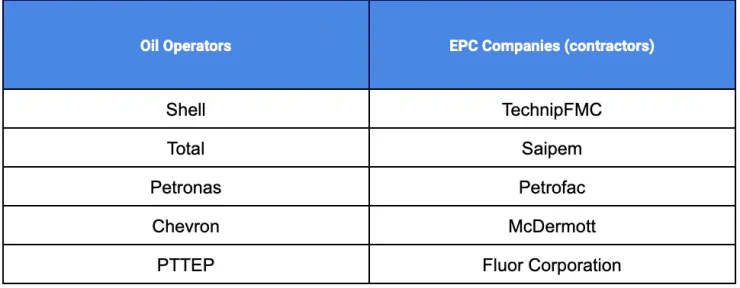Oilfield Operators and Contractors, What You Need to Know

What are oil operators and contractors? The oil and gas industry is a complex and ever-evolving landscape, with a diverse range of players involved in the production, exploration, and transportation of vital resources. Two of the most important groups within this sector are oil operators and contractors, who play a crucial role in ensuring the smooth and efficient functioning of the industry as a whole.
As the industry faces new challenges and opportunities, from the ongoing shift towards renewable energy sources to the increasing demands of a growing global population, understanding the differences between these two groups has never been more important. In this guide, we will break down the differences between oil operators and contractors, their roles, and how they work together.
Who are Oil Operators?
Oil operators are companies that hold the rights to explore, develop, and produce oil and gas resources. These companies usually have significant financial resources, technical expertise, and the infrastructure to support exploration and production activities. Oil operators are also responsible for ensuring that oil and gas operations are conducted safely, efficiently, and in compliance with regulatory requirements.
Who are Contractors?
Contractors, on the other hand, are companies that provide specialised services and equipment to support oil and gas exploration and production activities. These companies may provide specific services such as drilling, well completion, logistics, and construction. Contractors often have significant technical expertise and the necessary equipment to support their operations. You might also know them as engineering, procurement and construction (EPC) contractors.
Check out our list of contractor and operator company examples:

Do you recognize any names?
How do Oil Operators and Contractors Work Together?
Oil operators and contractors work closely together to explore, develop, and produce oil and gas resources. Operators typically hire contractors to provide specialised services and equipment to support their operations. For example, a drilling contractor may be hired to drill wells for an oil operator, while a logistics contractor may be hired to provide transportation services for equipment and personnel. Oil operators and contractors also work together to manage risk, ensure safety, and comply with regulatory requirements.
To go a little bit deeper, oil and gas operations can be divided into three distinct phases: upstream, midstream, and downstream. Each phase requires different types of expertise and equipment, and contractors and operators often work together to accomplish the goals of each phase.
- Upstream operations (exploration and production)
Contractors are brought in to provide specialised expertise and equipment for tasks such as drilling, seismic testing, and well completions. Operators, on the other hand, are responsible for overseeing and managing the day-to-day operations of the oil and gas field.
- Midstream operations (transportation and storage)
This phase covers pipelines, terminals, and storage tanks. Contractors are often brought in to construct and maintain these facilities, while operators are responsible for ensuring that the facilities operate safely and efficiently.
- Downstream operations (processing and distribution)
This phase includes activities such as refineries, petrochemical plants, and gas stations. Contractors may be brought in to be involved in the construction and maintenance of these facilities. Meanwhile, operators are responsible for managing the production and distribution of oil and gas products.
Differences in Responsibilities and Risks
One of the main differences between oil operators and contractors is their level of responsibility and risk. Oil operators are ultimately responsible for the safety, environmental impact, and financial performance of their operations. Contractors, on the other hand, are responsible for the quality of their work and the safety of their personnel, but they are not responsible for the overall performance of the project. In terms of risks, contractors face more financial and operational risks than oil operators, as they typically operate on a project-by-project basis and may not have long-term contracts with oil operators.
The Future of Oil Operators and Contractors
As the world shifts towards more sustainable and environmentally friendly solutions, the oil and gas industry is one of the biggest fields that’s feeling the impact. Green agendas, including the push towards renewable energy sources, are transforming the way the industry operates. For instance, operators are now seeking out contractors and engineering talents with expertise in renewable energy sources and sustainability.
However, this change might pose a challenge to contractors who have traditionally focused solely on oil and gas. To stay relevant, there’s a pressing need for contractors to adapt their skills and services to include renewable energy projects. This may require investment in new technologies and training for employees.
As the industry continues to evolve and welcomes new challenges and opportunities up ahead, it is likely that the roles and responsibilities of oil operators and contractors will also change. Nonetheless, the need for their partnership and collaboration will remain constant as the role of oil and gas in our daily lives remains significant.












